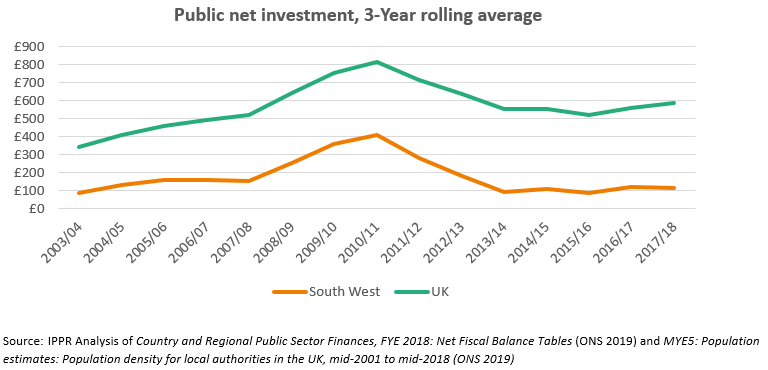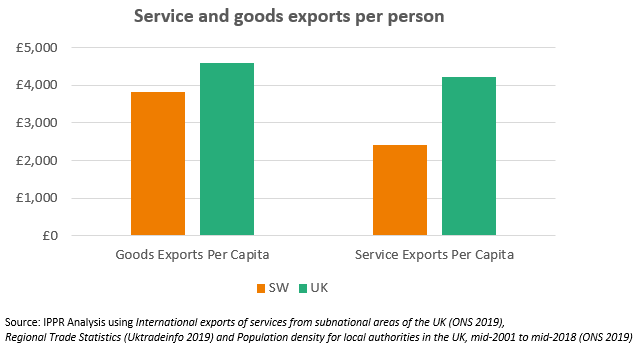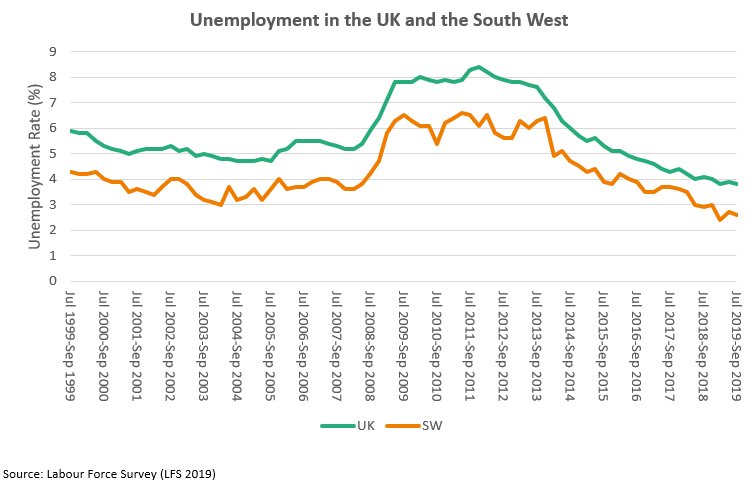REGIONAL ANALYSIS: South West
Article
This analysis was handed out at our event Economic Justice for the South West. The event was part of a UK-wide series of public meetings held by the IPPR Centre for Economic Justice.
Government investment has been significantly lower than the UK average
The South West has seen some of the lowest levels of government net investment (additional spending on schools, hospitals, roads etc. accounting for estimated “wear and tear” which occurs in that year) per head than anywhere else in the UK, and this is true both now and historically.

If investment per head had been at UK levels in 2017/18, this would have amounted to an additional £2.5bn in net investment for the South West that year. Looking over the past 10 years this amounts to £26bn lower net investment than if investment per head were at the UK average in each year.
The region exports fewer goods and services than elsewhere
This relatively low government investment is likely to affect the region’s international competitiveness and affect exports, the sale of goods and services abroad. The South West exports relatively fewer goods and services than elsewhere, 16% fewer goods per person and 43% fewer services per person than the UK average.

Unemployment is below the UK average and still falling
However, the region performs well on measures of unemployment, which is the lowest in any region or country in Great Britain. Unemployment in the South West has been consistently lower than the UK average over the past 20 years. You are more than 30% less likely to be unemployed in the South West than average, according to the latest data. This is not just because there are fewer people looking for work: the region also has above average employment rates despite having the highest proportion of pensioners of any region.
Less than 3% of those in the labour market1 are unable to find work in the South West.

Further, the region has the joint lowest (with the South East) percentage of working age people with no or low qualifications.
1. To be “in the labour market” means you are either working or seeking work
Related items

The full-speed economy: Does running a hotter economy benefit workers?
How a slightly hotter economy might be able to boost future growth.
Making the most of it: Unitarisation, hyperlocal democratic renewal and community empowerment
Local government reorganisation need not result in a weakening of democracy at the local level.
Transport and growth: Reforming transport investment for place-based growth
The ability to deliver transformative public transport is not constrained by a lack of ideas, public support or local ambition. It is constrained by the way decisions are taken at the national level.